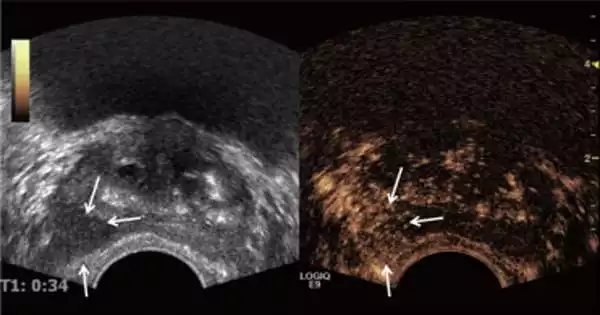The Healthy Nevada Project® discovered links between genetics, obesity, and childhood trauma in new research, combining socioeconomic health determinants, genetics, and disease. The study, published this week in Frontiers in Genetics, discovered that participants with specific genetic features and who had experienced childhood traumas are more likely to be obese as adults.
The Healthy Nevada Project®, the nation’s first community-based, population health study, was started in 2016 by DRI and Renown Health, and it now includes over 60,000 participants. The project is a collaboration with Helix, a personal genomics firm, and it combines genetic, environmental, social, and clinical data to address individual and community health issues with the goal of improving health across the state and nation.
The new study focuses on Adverse Childhood Experiences (ACEs), which are painful and dangerous situations that children experience before the age of 18. Over 16,000 Healthy Nevada Project® participants completed a mental health survey, and more than 65 percent of these individuals self-reported at least one ACE event. These 16,000 subjects’ genetic make-up and clinical Body Mass Index (BMI) measurements were cross-referenced.
Our research revealed a constant increase in BMI for each ACE an individual had, indicating a very strong and meaningful relationship between the number of adverse childhood experiences and adult obesity.
Karen Schlauch
According to the conclusions of the research team, study participants who had one or more forms of ACE were 1.5 times more likely to become obese adults. Participants who had four or more ACEs were more than twice as likely to develop severe obesity.
“Understanding how Adverse Childhood Experiences, such as abuse, poverty, food insecurity, and poor relationships with primary caregivers, increase a person’s risk for obesity while also interacting with genetics is critical to understanding how we can provide earlier interventions, reduce health disparities, and create a healthier Nevada for all,” said Tony Slonim, MD, DrPH, President & CEO of Renown Health. Slonim, the CEO of Renown Health in Reno, Nevada, is the country’s first quadruple-board-certified doctor, having certifications in adult critical care, internal medicine, pediatric critical care, and pediatrics, as well as a Doctorate in Public Health.
“Our research revealed a constant increase in BMI for each ACE an individual had, indicating a very strong and meaningful relationship between the number of adverse childhood experiences and adult obesity,” said DRI lead author Karen Schlauch, Ph.D. “More crucially, when paired with particular mutations in many genes, one of which is closely connected with schizophrenia, participants’ BMI reacted even more strongly to the existence of ACEs.”

“Our new study shows that the combination of genes and environmental factors like ACEs, as well as many social determinants of health, can lead to more serious health outcomes than either variable alone. More broadly, this new work emphasizes how important it is for population genetic studies to consider the impact of social determinants on health outcomes.”
The research team feels that it is critical for clinical caregivers to realize the significant influence that adverse childhood experiences (ACEs) can have on both child and adult health. The researchers anticipate that the findings of this study would inspire doctors and nurses to perform simple ACE screens and to include a patient’s social environment and history, as well as genetics, when formulating treatment strategies for better patient health.
25.6 percent of Washoe County youth are overweight or obese, according to the 2019 Youth Behavior Risk Survey (YRBS). Obesity is a major health issue for children and adolescents. Obese children and adolescents are more likely to become obese adults, according to the Centers for Disease Control and Prevention.
“Obese and overweight children and adolescents are at risk for a variety of health problems during their childhood, which are likely to be more severe as adults,” said Max J. Coppes, MD, PhD, MBA, FAAP, Nell J Redfield Chair of Pediatrics at the University of Nevada Reno School of Medicine and Physician in Chief of Renown Children’s Hospital. “Obese and overweight children and adolescents are more likely to develop risk factors for cardiovascular disease, such as high blood pressure, high cholesterol, and type 2 diabetes. Losing weight, in addition to eating a balanced diet, aids in the prevention and control of various chronic diseases, as well as improving quality of life over time.”
“We’d want to thank all of the Healthy Nevada Project® participants who submitted information that allowed us to do our job,” stated DRI’s Robert Read, M.S. “Our findings show that it is not simply genetics that cause disease, but that our environment and life experiences interact with our genes to influence our health in ways that we are only beginning to comprehend.”
















